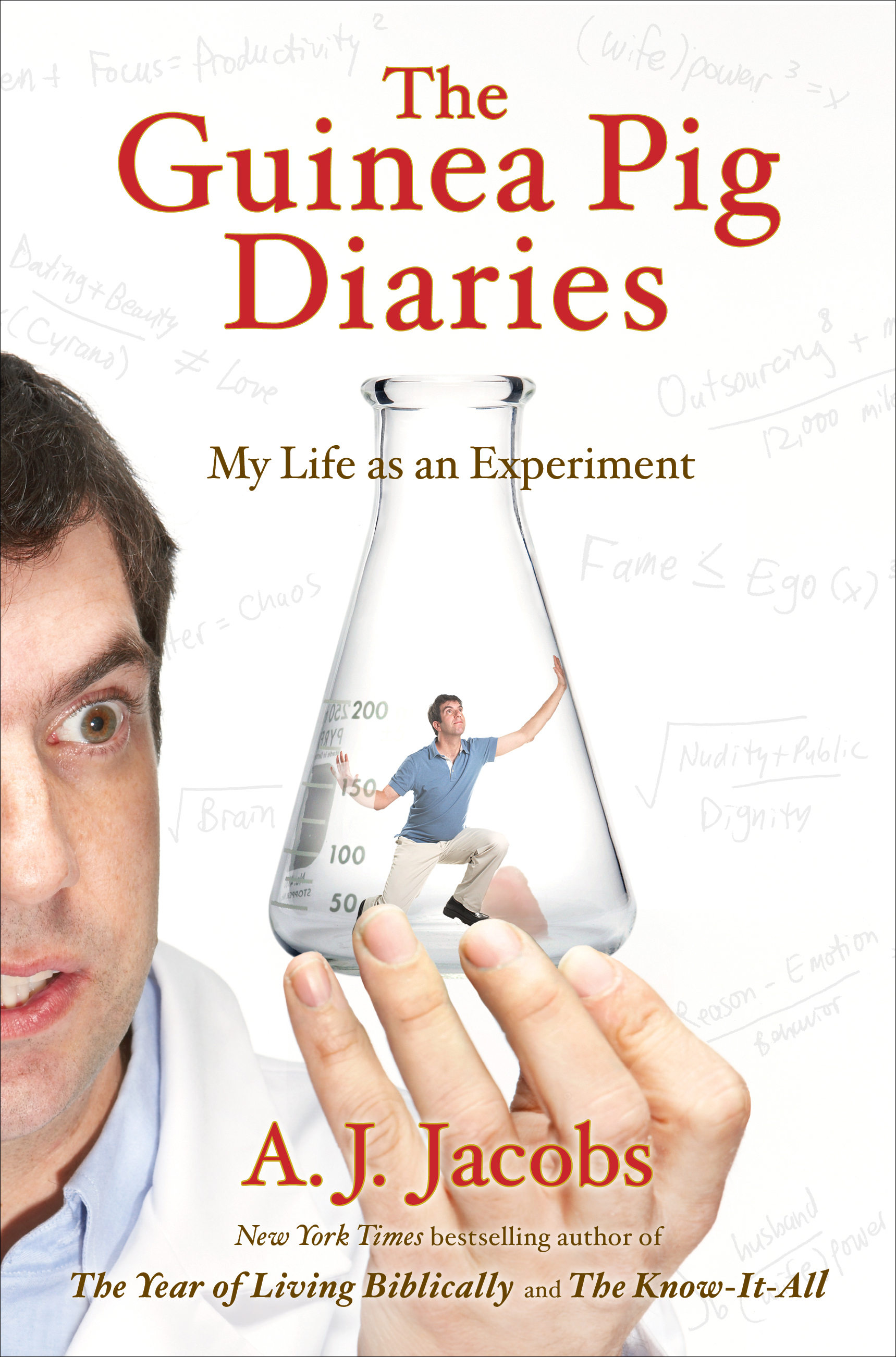In some ways, A.J. Jacobs and I are from the same cloth. We both enjoy taking on projects for
limited periods of time, allowing them to seep into our souls. This project is
one such idea. Granted, I have never done anything nearly as ridiculous and
interesting as the experiments Jacobs does with his life. Trying to outsource
your life, living a year based on the literal translation of the Bible, and
reading the entire encyclopedia are unique and etravagent experiments (although
I have thought about reading the entire Encyclopedia Judaica). During each of
his experiments, Jacobs changes one thing about his life, seeing how it changes
his time and in turn changes him. Spending a month living like George
Washington allowed him to see things from a more polite and regal point of
view, and spending a month listening to every whim of his wife showed him how
much time is wasted bickering and overthinking. He does not go into the
experiments with expectations as to what he will see but allows the difference
in his life to show itself. In some ways, this is precisely what can be so
powerful about the writing experience. Writing allows you to think through your
own thoughts as you try to immortalize them on paper. Jacobs particularly has a
self-reflective nature of writing, as he is self-aware of his own
ridiculousness.
I
think there is a lot to learn from these type of experiments. One, making
changes in our actions effects our feelings and changes us, for good or bad.
Two, only by making a change does one understand what was happening beforehand.
That jolt helps us see what was occurring all along, a broader version of
“you’re gunna miss me when I’m gone”.
For
those religiously inclined, it seems that these two lessons are a main part of
the High Holidays and the days in between. The focus on the Shofar as a sounding
to wake us up from our slumber reminds us to not live our lives the same way we
have by rote. We must be physically shaken in order to achieve this
affirmation, extra prayers are not enough. During the intermittent days between
Rosh Hashana and Yom Kippur we are told to live this week like we would want to
live the year, using each day of the week as a model for the next 51 times they
come up in the calendar. In essence, this is an experiment. It is an experiment
of living your religious life the way you would in an ideal world as a way of
waking up your soul. Other holidays have this as well. On Passover, we
experience what it was like to leave Egypt as slaves, and on Shavuot we stay up
studying all night, experiencing what it was like to receive G-d’s command. These
experiences inculcate the values that are inherent in them. Jacob’s method is a
Jewish one (he is Jewish after all-classic) of learning and understanding
through experience. May we all have the experience we are looking for these
next couple of days and weeks.




